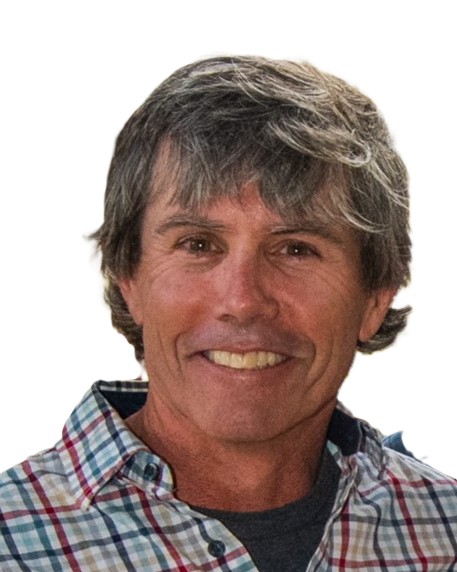Walter Magill runs for at-large council seat, urges ‘can-do’ attitude for Steamboat

Courtesy photo/Walter Magill
Walter Magill, local civil engineer and land surveyor, has joined a competitive race for the at-large seat on the Steamboat Springs City Council, calling for improvements in staff utilization, practical housing solutions and an attitude shift in local government from a “can’t do” to a “can do” approach.
With nearly 30 years in the community, including a decade as a City Council member and two as council president, Magill brings experience and a record of public service to the race, hoping his perspective “can benefit the city … to move in the right direction, to serve more people and to make it a better place to live.”
A pragmatic view on the city budget
For Magill, one of Steamboat’s biggest challenges — and opportunities — starts with the city’s budget and the utilization of staff.
“We keep saying, ‘The city wants more services, so we need more employees,'” said Magill. “Well, our population is not growing at the same rate as the city’s staff.”
He pointed to stalled Parks and Recreation projects, such as Bear River Park and a second hockey rink, and questioned why staff positions continue to increase while community priorities remain incomplete.
“We’ve still been adding project managers at (the Parks and Rec Department). So it seems that we’ve got an excess of employees and we’re not getting the projects done for the community,” he said.
Magill’s fiscal scrutiny extends to city planning processes, arguing that outdated requirements persist because staff claim they lack resources to revise development codes.
“If we want to revise the planning code to be more water-resistant, the staff says, ‘We can’t revise it because we’d have to hire another planner,'” he said. “It’s an easy catch if somebody will direct them to do it.”
Magill’s platform is rooted in finding practical, low-cost solutions and looking at a variety of alternatives to meet community needs.
“We talk about parking downtown — we haven’t done a parking count. And (staff will) say, ‘Well, we need a consultant.’ Why don’t we send out our GIS guy with his collector and he can (count) each of the parking spaces all week?” he said. “Now we’re done. Now we know how many parking spaces we need.”
He described similar logic for tracking calls from police and fire personnel, saying transparent data can help the city respond more accurately to resident needs and inform future policies.
“Wouldn’t it be nice to see where the calls are coming from and where they’re going to? Let’s be honest about it,” he said. “Let’s put the information out there.”
Rethinking housing: local management and accountability
While housing remains central to Magill’s platform, he’s skeptical about the current approach, worrying that federally-funded projects led by organizations like the Yampa Valley Housing Authority may not sufficiently serve Routt County residents.
“If we’re going to rent 100 units … what were the zip codes of those last 100 people that just moved into our community?” he said, noting that information is not available to YVHA since they don’t manage some of the properties they’ve helped fund. “For people from an organization that calls itself the Yampa Valley Housing Authority, how many people in the Yampa Valley are they reaching?”
Magill calls for better tracking of who benefits from local housing efforts and suggests local management, not distant oversight, for future projects.
“Why doesn’t YVHA get back into the management business and do an onsite manager, and work on these projects, like they’ve done up at Hillside Condominiums?” he said. “No, they’ve sold it to Denver people to just do housing.”
On the city’s contentious Brown Ranch housing proposal, Magill advised a phased process and proposed starting with a mix of manufactured homes and apartments, alongside five- or 10-acre commercial parcels.
“You don’t have to have the whole problem solved in 450 acres to begin a project here,” he said. “We start, we annex the land, and now we can develop and zone the land. But we’re asking too big of a question.”
“We haven’t developed any new commercial on the west side of Steamboat Springs, and the Routt County plan, the new unified development code, doesn’t call for growth areas with commercial anywhere out in Milner,” he added. “(Brown Ranch) is the last stop to serve a lot of people that have been underserved in Steamboat II and Heritage Park and Silver Spur for years, decades.”
On transportation, fiscal sustainability and sidewalks
Magill sees value in pursuing regional transit solutions, wanting to better serve commuters between Craig and Steamboat and acknowledging the stress and danger of daily drives. But he wondered about mass transit’s potential impact on traffic.
“More regional buses — one more bus — it’s going to slow down traffic,” he said, adding that changing commuter behavior and “getting people to get on the bus” is an ongoing challenge.
In light of tense back-and-forth negotiation discussions between the six Yampa Valley municipalities and Steamboat Ski & Resort Corp. regarding the Ski Corp.’s financial commitment to the proposed Yampa Valley Regional Transportation Authority, Magill views Ski Corp. as an essential partner.
“If they have to make financial decisions from their corporation, they’re entitled to make those decisions,” he said.
He recognized the resort’s work with the local marketing district on flight expansion and said he wants to see sustained cooperation on shared initiatives like the RTA, underscoring “continued collaboration and cooperation.”
Asked how he evaluates the current City Council, Magill, unlike several other candidates, offered measured praise — but expressed unease about the proliferation of new tax proposals.
“We have to look at the overall budget, and the budget continues to climb because we continue to add employees, and then we’re always looking to tax someone else — the guests, the visitors,” he said.
While not advocating for a property tax, Magill maintained it should be considered among a range of fiscal tools.
“The city should look into (a property tax) as they suggest vacancy taxes and they suggest crazy accommodations taxes, and a lift tax, and what are these things going to be used for?” he said. “If it’s the betterment of the way of life in Steamboat Springs, then a property tax has to be an option.”
He pressed city leaders to cut spending carefully and protect core services, such as late-night and express bus routes that benefit the most residents.
Magill’s professional expertise as a civil engineer and land surveyor gives him a unique vantage point on planning and development.
“I know a lot about the planning code and parking requirements for restaurants, dental, medical facilities … unless you have a large enough lot, you can’t put these new facilities in the city,” he said, citing the need for smart use of the city’s limited undeveloped land.
His career experience has also allowed him insight into a topic he’s frequently discussed during public comment at City Council meetings: sidewalks in Steamboat.
“We have a complete street policy, where we’re building more sidewalks on 13th Street, where we already have a full sidewalk on one side, than in any of the neighborhoods that need them — such as Tamarack (Drive),” Magill said, promoting connecting neighborhoods and commercial hubs as an approach he believes will serve the largest number of residents.
“It doesn’t serve anybody to complete a project and build a 6-foot, 8-foot sidewalk on 13th Street, and there’s no future connections, and meanwhile we’re missing sidewalks on Tamarack and Fish Creek Falls, where people are walking their dogs in heavily trafficked areas,” he said.
As a former council president, Magill reflected on lessons learned to facilitate efficient, informed governance.
“Know when to speak. You don’t have to say something on every issue,” he said. “But also ask staff to make sure there’s alternatives in presentations on budgets, and not just the one single option.”
Magill, whose tentative campaign slogan is “change from a can’t-do to a can-do attitude,” hasn’t settled fully on remaining in the race — acknowledging the personal and professional demands of serving on council — but said he’s motivated by a desire to improve projects with real community impact, large and small.
“The idea is to benefit as many people in the public with our projects as we can,” he said, “not to check boxes and build sidewalks where they’re not necessary, or less necessary.”
Magill has chosen not to provide contact information regarding his campaign at this time.

Support Local Journalism

Support Local Journalism
Readers around Steamboat and Routt County make the Steamboat Pilot & Today’s work possible. Your financial contribution supports our efforts to deliver quality, locally relevant journalism.
Now more than ever, your support is critical to help us keep our community informed about the evolving coronavirus pandemic and the impact it is having locally. Every contribution, however large or small, will make a difference.
Each donation will be used exclusively for the development and creation of increased news coverage.









